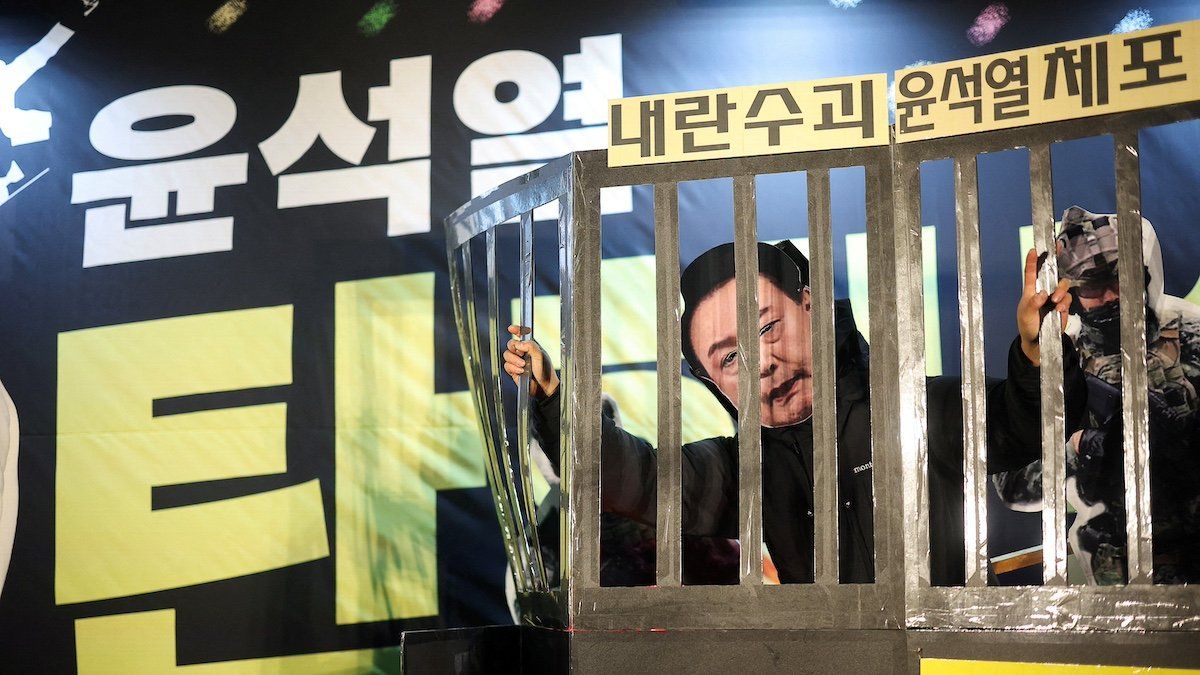In South Korea, President Yoon Suk Yeol’sparty hasturned on him, throwing their support behind attempts to impeach him after last week’s brief declaration of martial law. The flip came moments before Yoon delivered a fiery speech Thursday in which he justified his actions and vowed not to step down.
The lead prosecutor in South Korea’s criminal investigation into Yoon said Wednesday he would arrest the presidentif warranted. Also on Wednesday, police attempted to raid the Yongsan Presidential Office to secure evidence of Yoon’s actions and mindset before and during the martial law order but retreated after an hourslong standoff with presidential security.
Yoon survived an impeachment vote last weekend, but he faces another one on Saturday. The opposition Democratic Party, which controls the National Assembly but falls eight votes short of the bar for impeachment, is far more likely to succeed this time now that Yoon’s People Power Party is backing impeachment.
As GZERO previously reported, PPP’s leader had been pressuring Yoon to step down and avoid impeachment altogether, though perhaps not immediately. They wanted to get Yoon to publicly agree now to resign in, say, February, which would’ve pushed elections even further away, creating space for maneuvering. Opposition leader Lee Jae-myung, who is the likely presidential candidate, has his own legal problems that could bar him from standing for office — if courts have enough time to process his case, that is. But with Yoon increasingly defiant, his party has decided to take matters into their own hands.
Can they really arrest the president? Ordinarily no. South Korea’s president enjoys immunity from prosecution — except in the case of insurrection charges. The case looks quite serious, and the former defense minister who allegedly encouraged the coup attempt tried to commit suicide following his arrest. He is now hospitalized, and the heads of the National Police Agency and Seoul Metropolitan Police Agency are also under arrest.
Looking ahead, Eurasia Group expert Jeremy Chan says Yoon’s impeachment is all but assured and that it “will be a positive development for the country because it will strip all presidential duties from Yoon and begin the process of turning the page on his presidency, which is likely to go down in history as the worst of its kind.”
